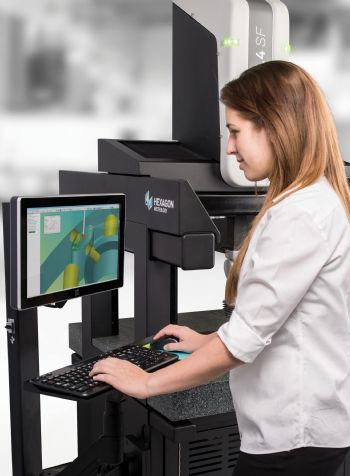
PC-DMIS 2014.1, the mid-term software release from Cobham-based Hexagon Metrology (
www.hexagonmetrology.com), introduces tools and technologies to help increase the performance of laser and optical measurement devices — particularly in the areas of point-cloud inspection and reverse engineering.
Laser scanner users will benefit from a new mesh command that allows them to create a single mesh from any number of point clouds, while alignment and filtering tools enhance the usability of laser scanning systems. Furthermore, a blade tool-kit module for point clouds improves the efficiency of blade inspection.
This latest software — compatible with the recently launched AT930 and AT960 Leica Absolute Trackers — provides a common software platform for shops using laser tracker technology. The software is also integrated with Teamcenter, an MMS (metrology management system) database package developed by Siemens that allows users to open measurement routines and load NX models directly from Teamcenter.
PC-DMIS 2014.1 also introduces QuickFeature for simple one-click feature creation from point-cloud data — without the need for a dialogue box. Meanwhile, the new Colour Scale feature allows users to configure colour-map properties for both surface and point colour maps for finer customisation; it also allows users to save custom layouts.
Optical measurement systems now benefit from a new distance-based outlier filter that reduces noise and increases accuracy via the ‘automatic hit target’ measuring method. Optical sensors also benefit from the QuickFeature functionality.
Other major improvements include: the ability to create section curves from clip planes for easy feature creation on complex geometries; and an updated method for 2-D angle dimensions, which ensures that the intended angle dimension is applied to the inspection report. Furthermore, improved accuracy for dual-arm CMMs is included, along with refined calibration algorithms.